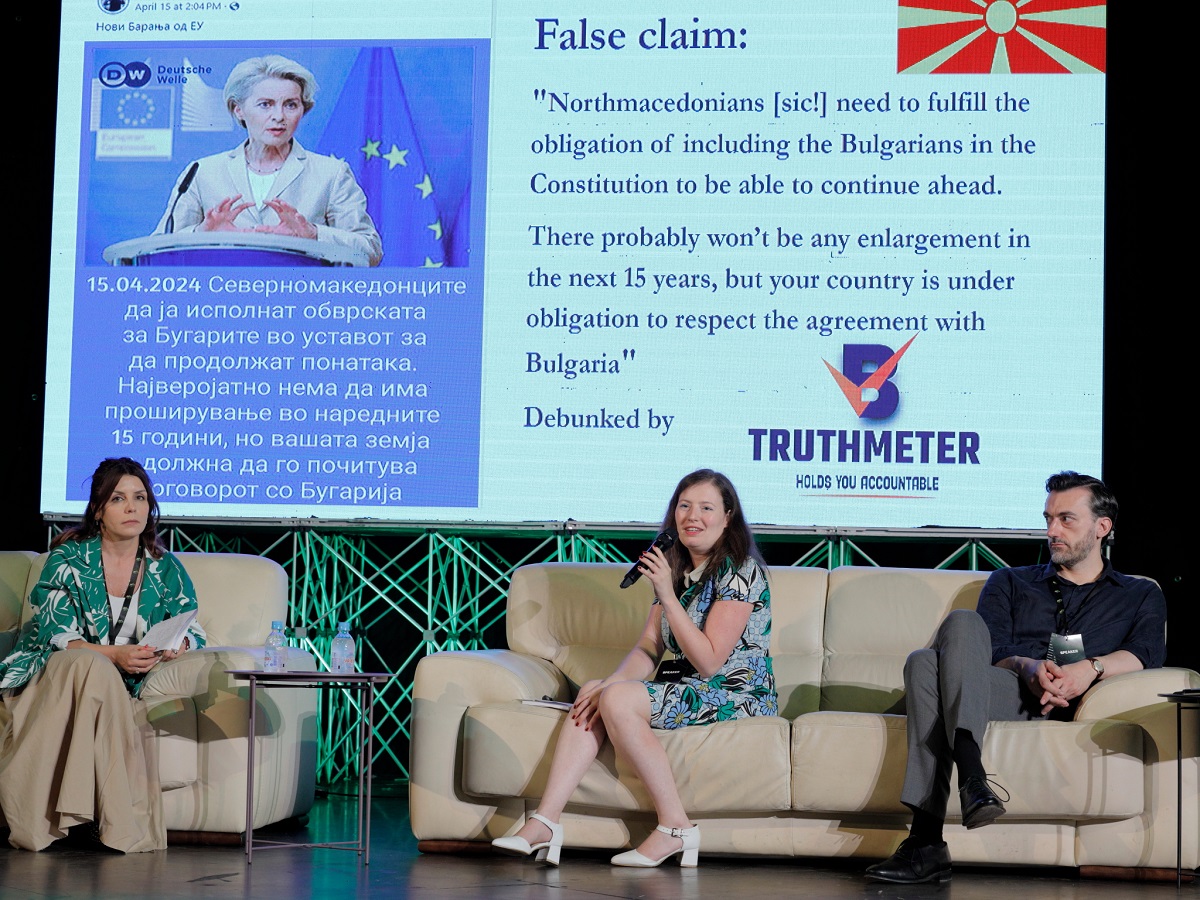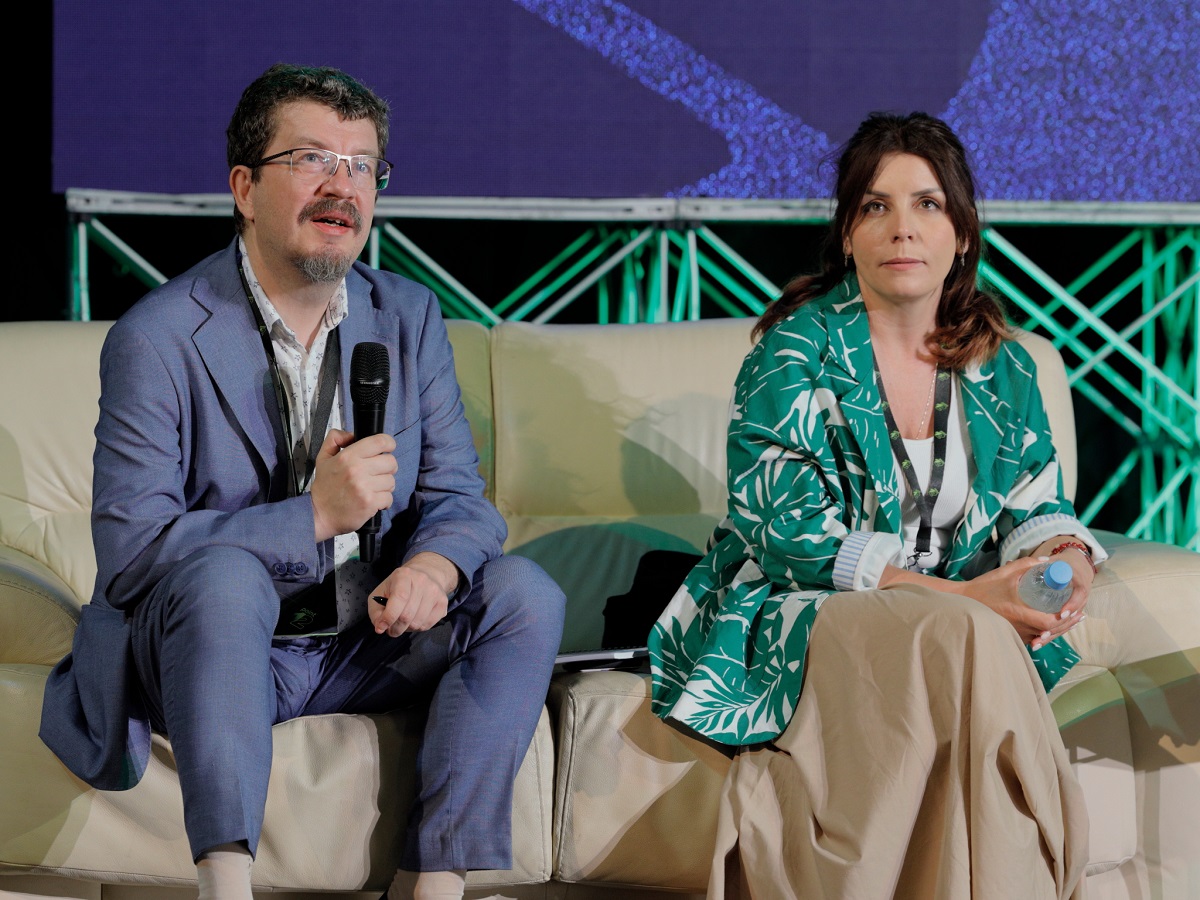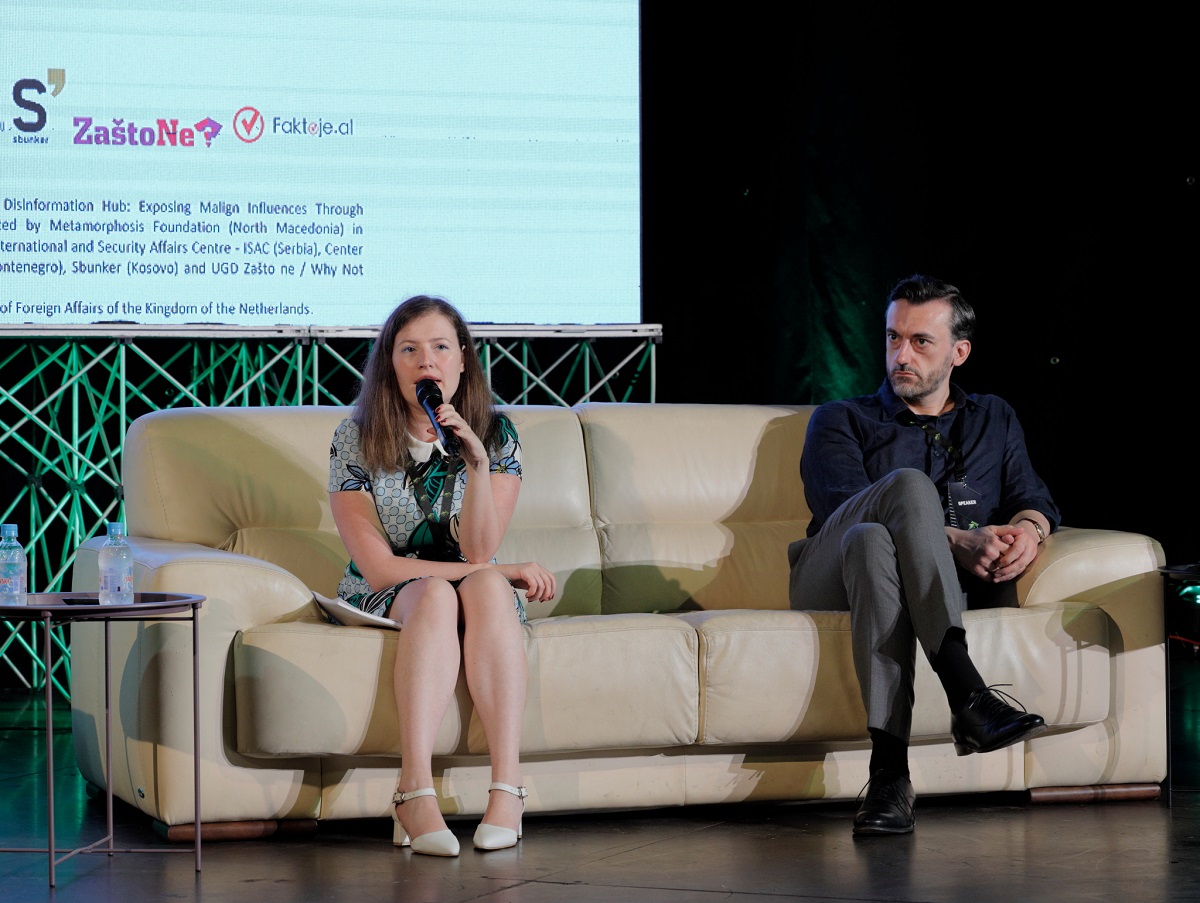Disinformation narratives inciting Euroscepticism in Western Balkans
One of the sessions that took place on the second day of Point 12 conference is the one regarding disinformation narratives inciting euroscepticism in the Western Balkans. The moderator and panelists presented the most used and dispersed narratives as well as their concerns, but gave conclusions as well.

The panelists on the session named “Disinformation narratives inciting Euroscepticism in Western Balkans” were Alen Musaefendić, head of Western Balkans Task Force at EEAS, Klodiana Kapo who leads the organization “Faktoje”, which provides fact-finding services in Albania since 2019, Despina Kovačevska, who serves as Media Monitoring Specialist within the team of Metamorphosis Foundation for Internet and Society from Skopje, North Macedonia. The moderator of the session was Filip Stojanovski from Metamorphosis Foundation.
The session was opened by Despina Kovačevska, who presented most common anti-EU narratives in the Western Balkans. Some of the anti-EU narrative present in the Western Balkans countries are those that the EU does not really want WB countries to join, anti-LGBT through a prism of the traditional societies / traditional values which would be endangered, the one that EU supports fascist behavior, and other conspiracy theories.

Alen Musaefendić explained that much of the disinformation coming to the Western Balkans countries is situational and country-targeting. He noted that the challenge is also the narrative of the EU as a union in economic decay. Some of the disinformation narratives come to the Western Balkans from the outside, particularly outside of the European Union.
Musaefendić underlined that Foreign Information Manipulation and Interference (FIMI), which EEAS defines as a pattern of behavior that threatens or has the potential to negatively impact values, procedures and political processes is important and that the European External Action Service has taken a leading role in addressing the issue, building up capacity to address the FIMI challenge since 2015, when the problem first appeared on the EU’s political agenda.
When it comes to the Chapter 31 of the acquis for candidate countries (Foreign, security and defence policy) Musaefendić noted that some small initiatives in Western Balkans have already been taken, for example in Albania and that similar initiatives are to be seen in other countries as well.
Regarding the situation of euroscepticism narrative in Albania, Klodiana Kovačevska said that NATO is still the institution in which citizens of this country believe, while some forms of Euroscepticism is present. The anti-EU narratives are mostly related to Covid-19 pandemic, vaccines against this disease and the LGBT community. She added that sometimes, Faktoje was being targeted as a defender of the LGBT, vaccination process, anti-Covid measures etc.

The session moderator, Filip Stojanovski underlined that the present eurosceptic narratives affect practical, political life in North Macedonia. He gave an example of a project of waste management that hasn’t improved for years because of the present narrative that WB countries are the “waste dump of the EU”. This reflects on the reality itself in the Western Balkans countries; Serbia having the lowest readiness to join the EU, while Albania the is having the highest. Answering the questions from the audience, Stojanovski added that disinformation narratives inciting euroscepticism in the WB is not only a media problem, but a security problem as well.
Musaefendić agreed with Stojanovski, saying that these phenomena shouldn’t be underestimated and citing Brexit as the examples of how those narratives worked.
In the conclusion, both moderator Stojanovski and panelists agreed that knowledge and education is important, as well as to stop hate narratives. To improve the knowledge and to combat hate narratives, they said, we need to follow the new technologies and mobilize local resources.
Author: Minel Abaz